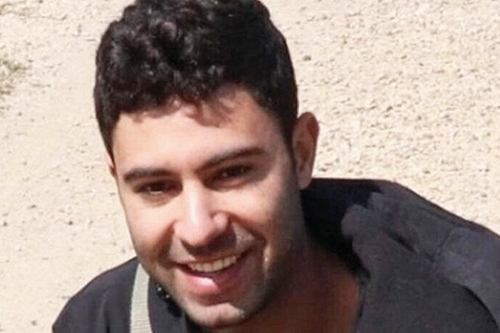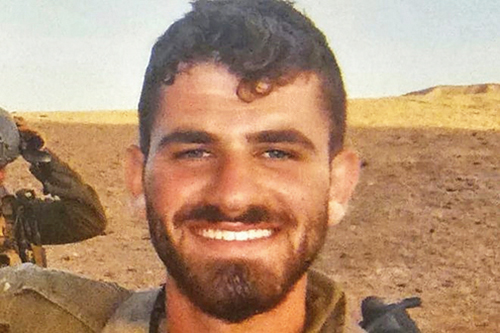Israeli forces are closing on Hamas headquarters in Gaza City.

By Joshua Marks/JNS.org
The head of Hamas’s weapons manufacturing department in the Gaza Strip was killed in an Israel Air Force strike overnight Tuesday, Nov. 7.
“As part of his role, Mohsen Abu Zina served as one of Hamas’s leading weapons developers, and was an expert in developing strategic weapons and rockets used by Hamas terrorists,” according to a joint statement by the IDF and the Israel Security Agency (Shin Bet).
During IDF operations in Gaza overnight Tuesday, ground forces directed airstrikes on Hamas cells preparing to fire anti-tank missiles and rockets toward Israel.
Terrorists have fired more than 9,500 rockets at Israel since Oct. 7, when thousands of Hamas terrorists broke through the border barrier and rampaged across the northwestern Negev, murdering 1,400 persons, wounding over 5,000 and taking more than 200 hostages back to Gaza.
Rocket warning sirens again sounded in communities close to the Gaza Strip on Wednesday morning.

IDF Closing on Hamas HQ in Gaza City
Israeli forces advanced in the last day toward the main Hamas headquarters in the heart of Gaza City, Army Radio reported on Wednesday.
The Hamas command and control center is located underneath Shifa Hospital, the largest medical center in the Gaza Strip, according to the IDF.
Pointing to a map of the hospital during a press conference last month, IDF Spokesman Rear Adm. Daniel Hagari said that Hamas conducts its command and control from places like the X-ray room.
“It is here in Shifa Hospital where Hamas operates its command-and-control cells. Hamas terrorists operate inside and under Shifa Hospital, with a network of terror tunnels. It also has an entrance to the tunnels from different places in the hospital,” said Hagari. “Right now, terrorists move freely at Shifa Hospital.”
Army Radio cited Israeli security officials as saying, “Our goal is not to occupy all of Gaza City—there is no need for that. The goal is to collapse the Hamas centers in the city, the headquarters below the hospitals, the central mosques and other nerve centers. This way it will be possible to move forward to achieve the goals of the war.”
Israel on Wednesday again opened a humanitarian corridor for Gaza residents to evacuate to the safe zone in the south beyond Wadi Gaza, despite coming under fire from Hamas terrorists.
It is the fifth consecutive day that Israel is allowing movement along the Salah al-Din road, with Gazans allowed to use the route between the hours of 10 a.m. and 2 p.m..
“For your safety, take advantage of the next time to move south beyond Wadi Gaza. The northern Gaza Strip area is considered a fierce combat zone, and time is running out to evacuate it. Join hundreds of thousands who have responded to calls and moved south in recent days,” tweeted Lt. Col. Avichay Adraee, the Israel Defense Forces’ Arabic-language spokesman.
“If you care about yourself and your loved ones, head south according to our instructions. Be sure that Hamas leaders have already taken care to protect themselves and their family members, as Mousa Abu Marzouk admitted,” Adraee said, in reference to comments made recently by the member of the Hamas political bureau that the Gaza tunnels were for Hamas terrorists and not civilians.
“It is the responsibility of the United Nations to protect” the residents of Gaza, not Hamas, Abu Marzouk said in an interview with the RT Network in Arabic.

Two More Israeli Soldiers Slain in Gaza
The IDF on Wednesday released for publication that Maj. (res.) Yaacov Ozeri, 28, was killed in action against Hamas terrorists in the northern Gaza Strip.
Ozeri was from the Upper Galilee moshav of Kfar Shamai. He served in the 52nd Battalion of the Armored Corps’s 401st Brigade.
The IDF also announced the death of Maj. Jonathan Chazor, 22, slain in a battle in the north of the Gaza Strip on Tuesday night.
Chazor, from the northern Israeli community of Katzir, was a commando in the air force’s Shaldag unit.
More than 30 Israeli soldiers have died in Gaza since the start of the IDF ground operation on Oct. 27, and more than 350 soldiers have died since the Oct. 7 invasion of the northwestern Negev.










